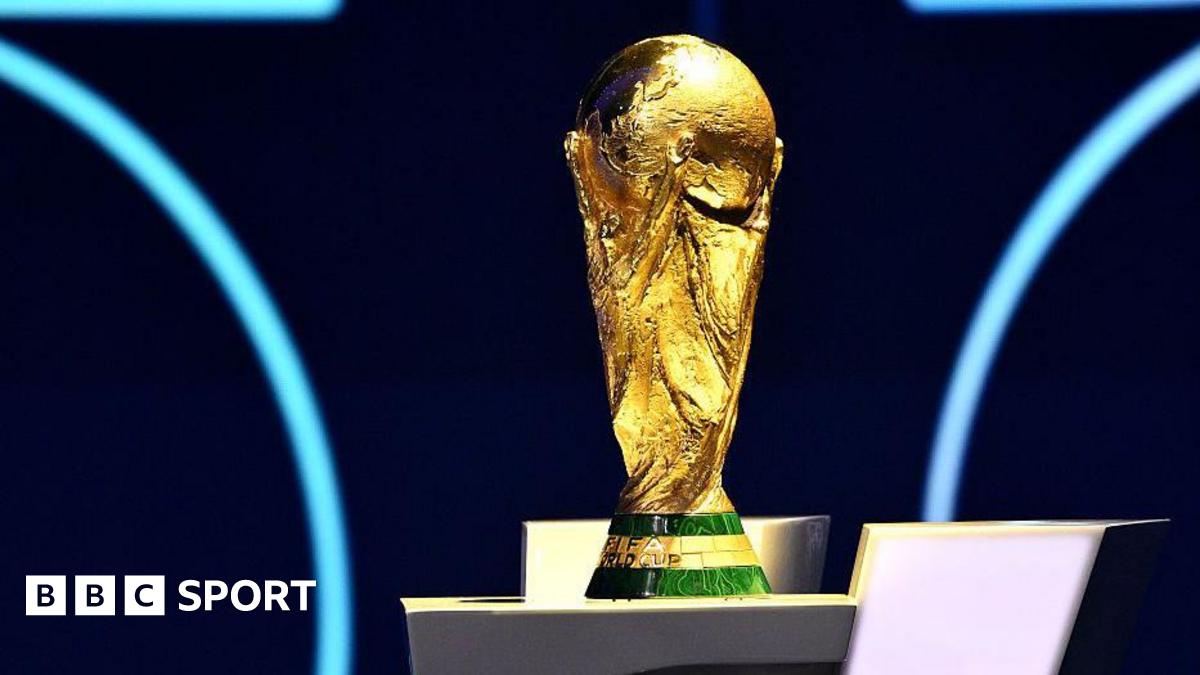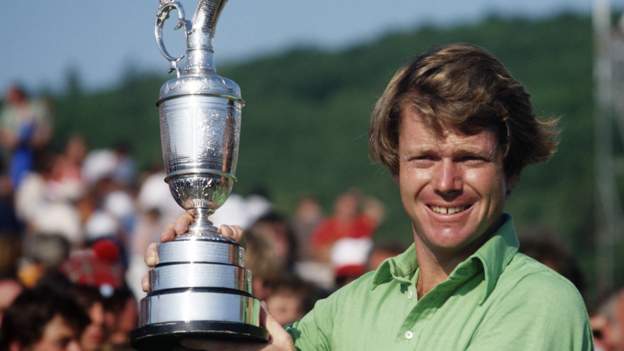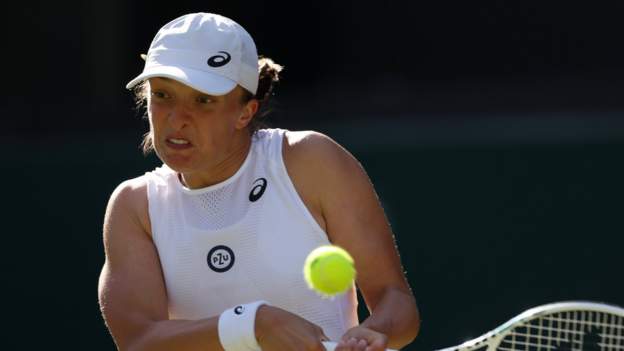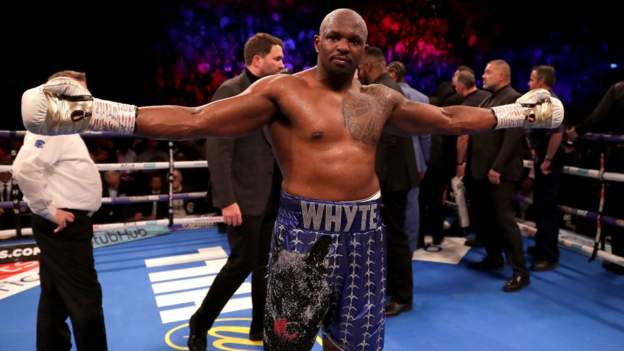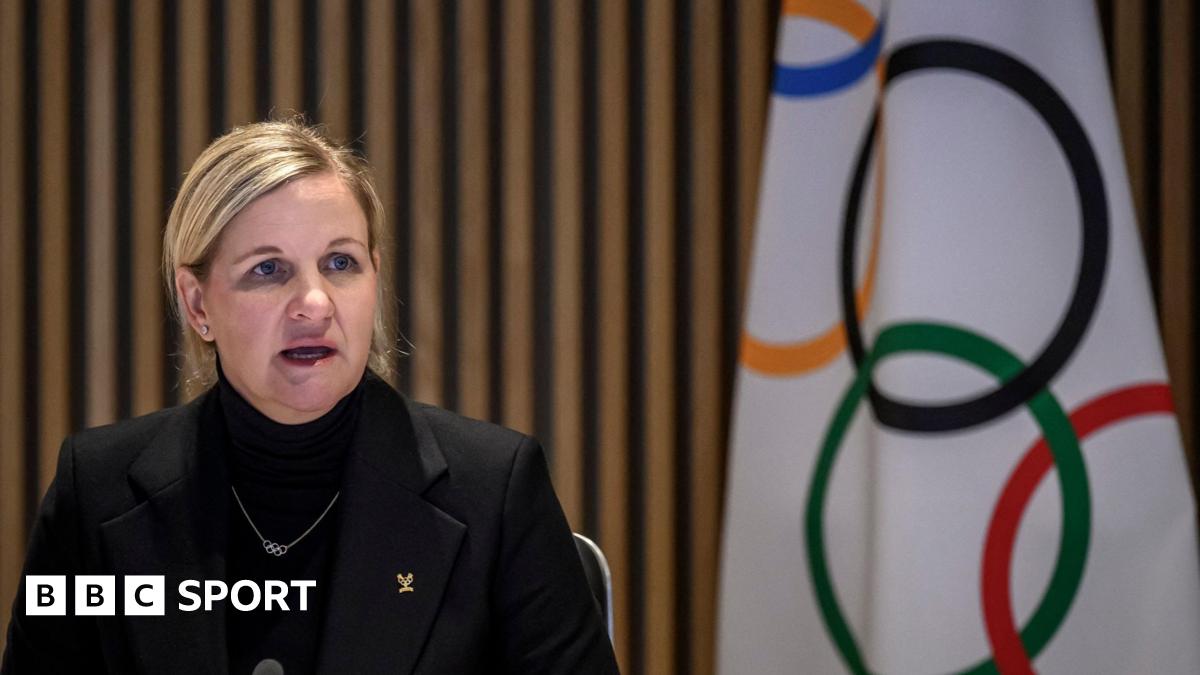In the pantheon of Open Championship greats, Tom Watson takes some beating.
Only Jersey’s Harry Vardon, with six victories, lifted the Claret Jug on more occasions. Watson is tied with James Braid, JH Taylor and Peter Thomson on five.
Vardon, Braid and Taylor – known as the Great Triumvirate – amassed their 16 Open titles before the outbreak of World War One in 1914.
Australian Thomson sensationally won four in five attempts from 1954 – finishing runner-up in the other – before claiming his fifth in 1965.
Watson won five in nine years, beating Jack Nicklaus in his prime.
It’s not all about volume of victories though.
BBC golf correspondent Iain Carter makes a compelling case for two-time winner Arnold Palmer in the latest BBC Radio 5 Live Sport podcast building up to July’s 150th Open. This week’s episode is ‘All About: The Legends’.
“The Open would not be the event it is today without Arnold Palmer,” said Carter.
When he first played in 1960, Palmer, who had already won the Masters and US Open that year, was forced to qualify for The Open. He duly did so and finished second to Australia’s Kel Nagle. He then won in 1961 and 1962.
But he did not see the point in Americans making what was then an arduous journey with no guarantee of playing in the Championship, so he told organisers to ditch qualifying and he would be 100% committed and would tell his countrymen.
In 1963, for the first time, 44 leading players were given exemptions and Palmer was credited with securing the status of The Open.
“That’s why The Open is the only major held outside of the US, and his impact, charisma, ability and force of his personality makes him a standout legend,” Carter added.
So, without Palmer’s intervention, we might never have seen Watson’s remarkable run of five victories in nine Championships from 1975.
In the rollcall of legends, there are also shouts for Jack Nicklaus, Tiger Woods, Seve Ballesteros and Nick Faldo – all three-time winners of the oldest championship in golf.
Like Nicklaus and Palmer before him, Watson ended his Open journey at the Old Course, in St Andrews. His farewell was at six minutes before 10pm on 17 July 2015.
Forty years earlier, at the age of 25, he made his debut at Carnoustie, winning an 18-hole play-off – but it is for his 1977 victory over Jack Nicklaus at Turnberry that he will forever be remembered.
The battle became known as the ‘Duel in the Sun’ after both players had shot rounds of 68-70-65 to lead the field by three.
“I came from three shots behind in the final round at Turnberry and tied him, and then got two shots behind and then tied him again,” said Watson, who had held off Nicklaus to win the Masters earlier that year.
Watson birdied the 17th to move one clear and hit his second to the par-four 18th to a couple of feet, while Nicklaus could only thrash his ball from the rough to around 35 feet. Nicklaus holed his birdie putt to heap the pressure back on Watson but the younger American tapped in to win his second title.
“I gave you my best shot, but you were better, well played,” said Nicklaus after the players had famously walked off the final green arm in arm.
Watson would go on to win three more Opens, his final one coming in 1983, also the last of his eight major titles.
However, he came remarkably close to equalling Vardon’s tally of six in an extraordinary Open Championship back at Turnberry in 2009.
Needing to par the final hole to become the oldest major winner at the age of 59, Watson’s second from the centre of the fairway caught a downslope short of the green and scuttled through the back, from where he would take three more.
“Maybe the ghost of Harry Vardon was blowing it,” Watson would joke of his second shot after losing the play-off to compatriot Stewart Cink.
Speaking on the podcast, with enormous self-deprecation, Watson, said: “It seems we golfers have a stretch of time where we compete at our highest level and it doesn’t last very long, maybe five to seven years, and that’s essentially what happened to me in my career.
“The truly great superstars like Nicklaus and Woods and [Sam] Snead, those are the players where they have their championship play expanding to 25 years, from when they were kids to when they were old wise guys.
“That’s how I judge the greatest.”










